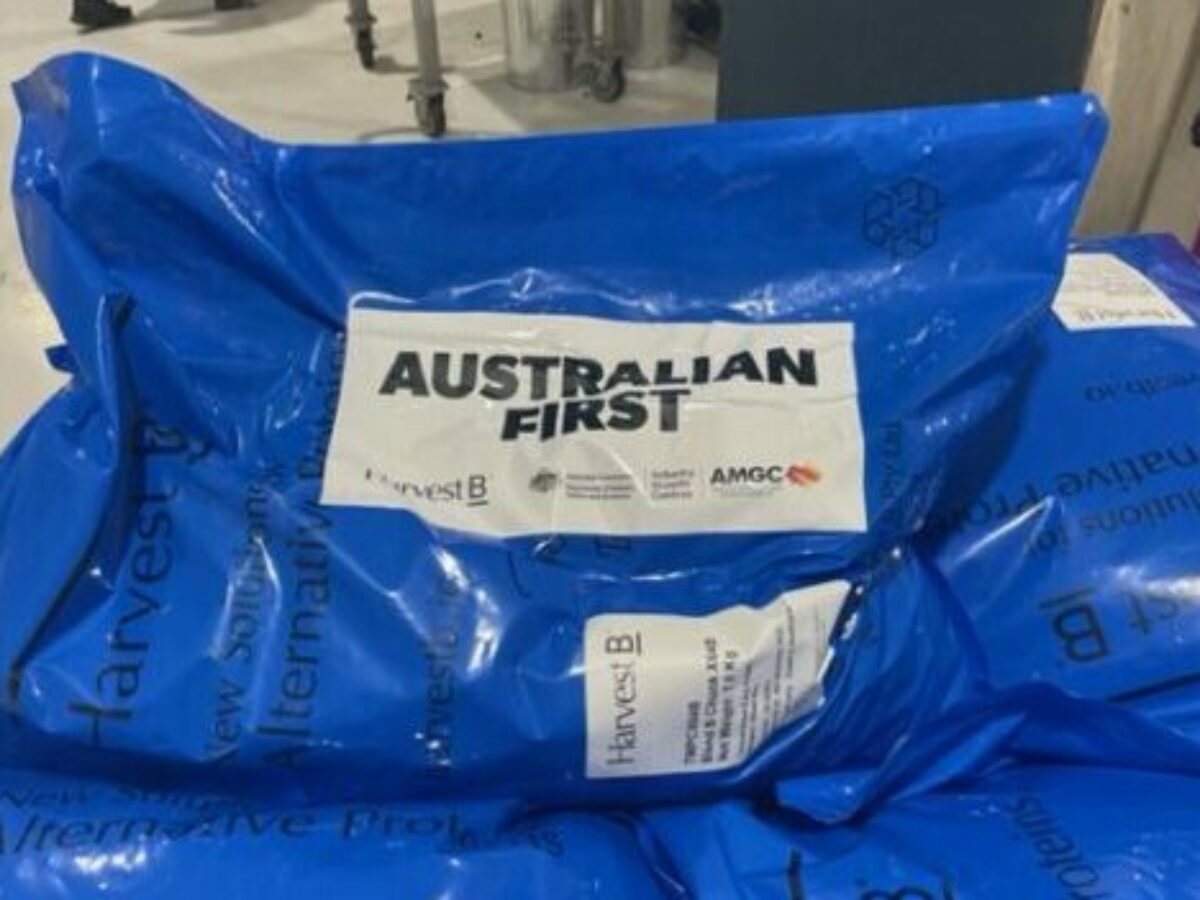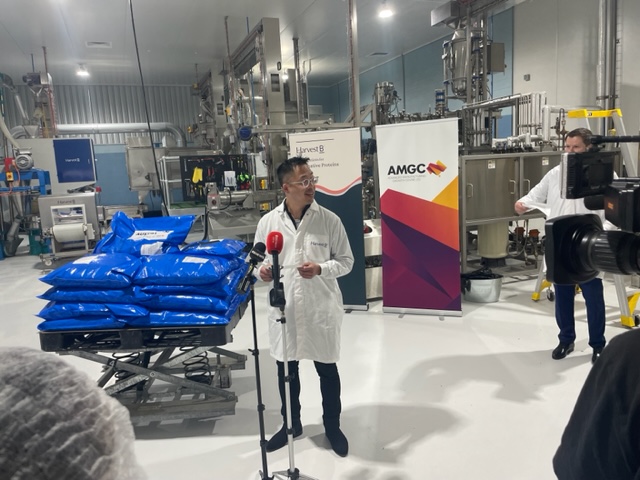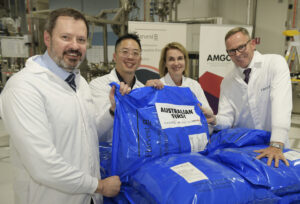Simplified ingredient lists and increased economic complexity

By Brent Balinski
One criticism from non-fans of plant-based meat is that options tend to come with a sizeable ingredient list, featuring a lot of unnatural-sounding words which might require a chemist or a lot of googling to decipher.
Alfred Lo, co-founder and Chief Commercial Officer at ingredient company Harvest B, says that his company – which opened the country’s first plant-based protein factory on Tuesday – aimed to do better than what he calls the “first generation of plant-based” products.
“The majority is wheat gluten, that’s the majority of the protein we have in our plant-based products. We also have soy, we have some flour, we have water – naturally – but that’s pretty much it,” he tells @AuManufacturing at the event.
“Which is quite different. If you look at the back of a v2[food] package or a Beyond [Meat] package or Impossible [Foods], the list is quite long.”
Lo’s company was founded only in 2020 and is targeting a gap in the booming plant-based scene, namely the lack of onshore protein isolate manufacture.
If you’re eating Australian-made fake meat, you’re probably also eating grain, pea or soybean-derived protein that’s been imported.

“The majority is wheat gluten, that’s the majority of the protein we have in our plant-based products. We also have soy, we have some flour, we have water – naturally – but that’s pretty much it,” explains Alfred Lo, co-founder and Chief Commercial Officer at Harvest B
Lo says that while his company’s soy is imported due to a lack of local supply, everything else – including the chief ingredient, wheat – is made here and transformed at the new Penrith pilot factory, which has a capacity of about 1,000 tonnes per year. Harvest B also runs a kitchen lab at Surry Hills.
According to Lo, the gluten used – made from wheat grown in Manildra, NSW – is part of what keeps the ingredient list small. (Harvest B has a range named Simply 3, reflecting the number of ingredients.)
“Gluten… is very neutral in its palate, unlike soy and pea, which have a strong aftertaste, an afternote – which you have to put masking agents on to cover,” he explains.
“It.also has a characteristic which is quite binding in nature. So it creates a really nice texture, in combination with different types of plant proteins we’ve been able to formulate our new product.”
Harvest B has developed ten products so far, from whole chunk to flake, across meat-free lamb, pork, chicken and beef. Lo says their customers so far include some unnamed multinational food brands, as well as a collection of restaurants, such as Soul Burger.
The company raised $4.5 million in 2021, led by Aura Ventures and Woolworths’ venture division, W23, as well as $1 million in funding through the Advanced Manufacturing Growth Centre Commercialisation Fund.
Lo declines to mention exactly how much has been invested in the new factory, but refers to the AMGC-backed project, which had a total budget of a little over $3 million and included new capital equipment and R&D.
It is expected to result in ten new jobs, in roles such as data technologist, QA specialist, two research associates and two food scientists.
Rumbi Chigiga, Innovations Specialist – Food Science, says that there were challenges in perfecting extrusion, a technique originally developed for the cereal industry, to create their products.
“Proteins work very differently to your starches and polysaccharides. And it’s like taking an old type of technology and using it for something else,” she tells @AuManufacturing.
“The skills were a bit of a challenge. The learning – our operations manager went overseas, [and] did training with our machine company.”

Federal industry minister Ed Husic, Lo, Harvest B co-founder and CEO Kristi Riordan, and AMGC Managing Director Dr Jens Goennemann (picture credit AMGC)
Harvest B says their products are highly stable and do not require cold storage to be transported, and are price-competitive or cheaper than meat-based protein.
They are targeting southeast Asian markets as part of their growth, and emphasise value-adding to high-quality, locally-grown crops.
A series A round to support their expansion is planned for late-next year.
Co-founder Kristi Riordan, who moved to Australia from the United States on a Global Talent Visa, has said elsewhere that the company began partly to address the gap in value-adding to Australian raw materials.
It is an overall situation highlighted in the nation’s weak economic complexity rankings, placed 91st in the world in the Harvard Growth Lab’s Economic Complexity Index, based on the diversity and sophistication of exports.
Lo, who has headed venture capital programs at AMP and Optus, and is a former Chief Investment Officer at Cicada Innovations, says that the local investor community still requires a bit of convincing when it comes to hardware businesses.
“Australian venture investments into advanced manufacturing still have a way to go,” he says.
“I think that we’ve come a long way in that asset class of new, high-growth technology food businesses, and agritech food businesses fall into that bucket. I think it’s less well-understood than other categories in the technology space.”
Further reading
MANUFACTURERS AWARDED $3.7 MILLION IN GRANTS THROUGH COMMERCIALISATION FUND
PLANT-BASED MEAT AND DAIRY PRODUCT CONSUMPTION UP 14 PER CENT IN 2020/21: ABS
SIX COMMERCIALISATION GRANTS, NEW PLANT PROTEIN FACILITY OPENED
Topics Analysis and Commentary
@aumanufacturing Sections
Analysis and Commentary Awards Defence Manufacturing News Podcast Technology Videos










